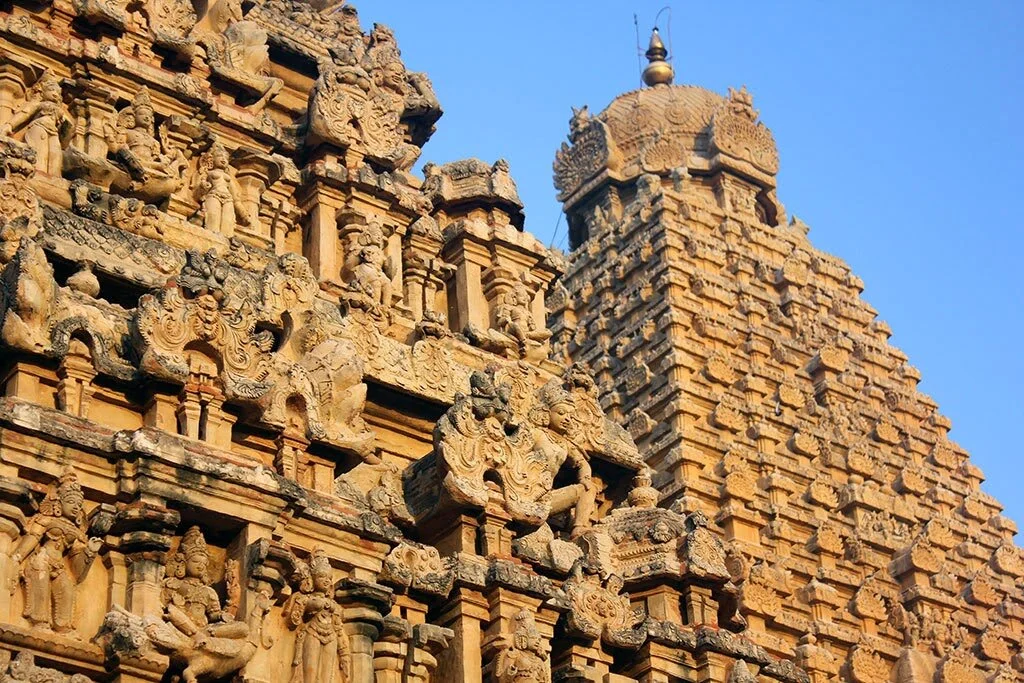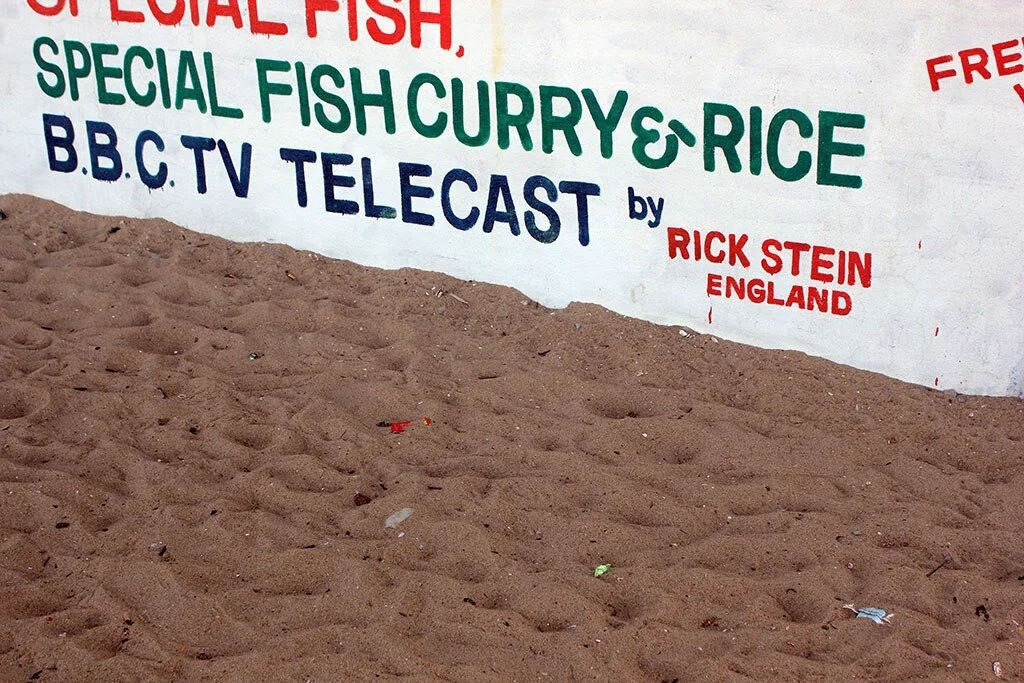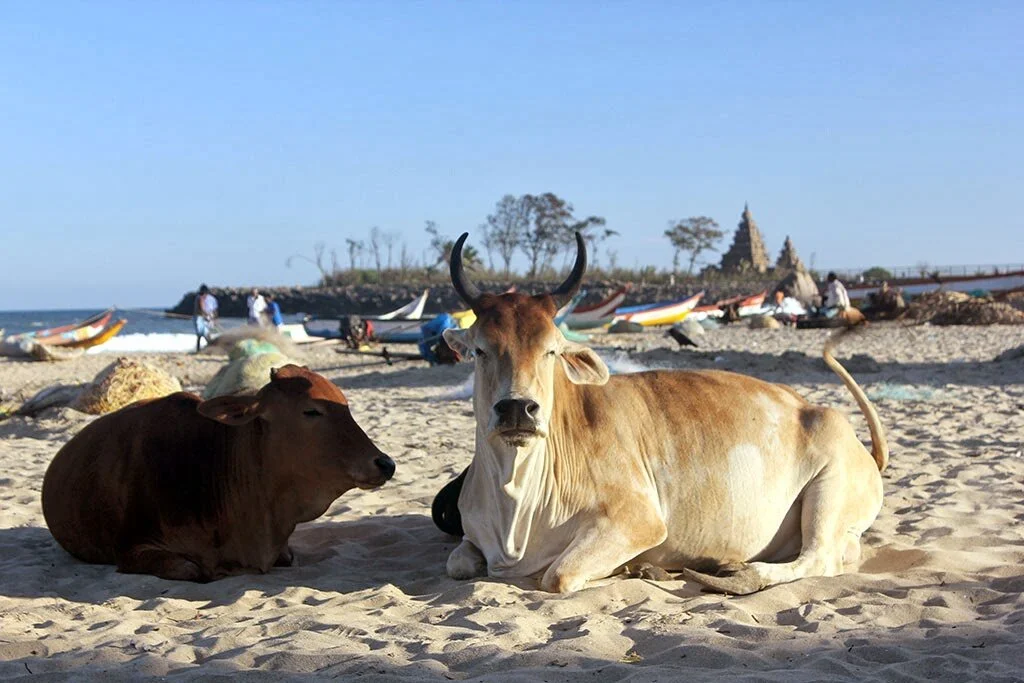And the wheels on the bus go round and round, round and round, round and round. And the wheels on the bus go round and round, all day long.
As apt and profound as these lyrics are, they only describe 75% of the journey from Munnar to Madurai, for the wheels also jerked up and down, up and down, all day long, such are the potholes on the thrilling-but-Jesus-Christ-that’s-a-steep-drop Western Ghats roads. And as uncomfortable and terrifying as this was, the jerkiness massaged my back better than any Ayurveda specialist could.
The moral of this incredible story, then, is to save your hard-earned rupees by shunning the spa in favour of travelling on local rattletraps, which will (eventually) refresh and rejuvenate with the added bonus of getting you somewhere you need to be.
The downside is that you’ll be contributing to the decline and subsequent extinction of a traditional millennia-old medicinal practice; a reason to visit south India in itself. Still, swings and roundabouts.
Hill folk, a term that sounds patronising but isn’t meant to, warned me that Madurai would be a cramped sweatbox of ubiquitous fumes, spittle and decrepitude. Or broken English words to that effect. But it gives me huge pleasure to independently and unbiasedly report that the city is nothing of the sort – steeped in Hindu mythology and boasting one of India’s finest temples, Madurai is absolutely a city worth visiting, if only for a couple of nights.
The Meenakshi Amman complex is spellbinding, the craft shops aren’t the type owned by your rickshaw driver’s friend or brother, and to my surprise the city wasn’t that busy, at least by Indian standards. But the best thing in Madurai is a magician by the name of Sardar Hussain, whose repertoire of card tricks and making things disappear culminates with him coughing up a kilogram of nine-inch iron nails.
While I would go so far to say that I quite enjoyed my time in Madurai, I wouldn’t want to settle down there, marry a local and start a family, so I decided to proceed north-east to sunny Tanjore, a city that promises visitors the spectacle of a temple 600 years older than the one in Madurai.
Yeah, screw you Madurai! Brihadeeswarar Temple is so old, in fact, that it pre-dates the invention of colour. Back in 1010, construction workers only had brown stone to work with, but they were clever enough to polish each and every block to reflect the morning and evening sun, which is rather pretty.
Sadly, my experience was ruined when my flip-flops were stolen by a gaggle of teenaged boys in shiny black and pink shirts (essentially anthropomorphised Liquorice Allsorts), who mercilessly pointed and laughed at my hair before eventually tossing back my disgusting footwear.
When I returned to my hotel room I realised they had been absolutely entitled to rib my salt-and-pepper locks, which have started to resemble the nether regions of Bodger’s badly behaved best mate. It felt only right to punish myself, so I purchased a red snapper and repeatedly slapped it across my face until I got too hungry and ate it, starting with its fishy little eyeballs.
Suitably humiliated, I decided I had consumed enough fish and quite fancied some steak and a glass of red wine. And as luck would have it, the coastal down of Pondicherry, once administered by our chums across the Channel (or, in the interests of geopolitical unbiasedness, mates across La Manche), was the next place on my to-see list.
Provencal it is not, but in Pondy couples walk hand-in-hand along the promenade, men play boules in front of the church, and croissants and coffee are consumed for breakfast. But the most entertaining thing here is awarding yourself 100 rupees of spending money every time ‘Life of Pi’ is mentioned. By the time I was due to proceed north for Mahabalipuram, a name that took me approximately three days to memorise and pronounce correctly, I had enough notes to run myself a money bath; a bit like that one in Slumdog Millionaire, minus the being murdered by gangsters bit.
As it happened, I bloody loved Mahabalipuram, whose name was recently changed to Mamallapuram but is often more conveniently referred to as Mahabs. In case you were wondering, which you weren’t. It reminded me of a scaled-down version of Hampi with a fishing village and arguably Tamil Nadu’s best beach thrown in for good measure.
After checking into my hotel I took a stroll along the beach and noticed a string of seafood restaurants facing out to sea, the first of which I vaguely recognised. On closer inspection I noticed a sign outside: ‘BBC TV Telecast by Rick Stein England’. I bloody knew it.
My belly rumbling in anticipation, I walked into the restaurant and asked for whatever Rick had wolfed. “White fish and gravy, sir”. “That’ll do squire, that’ll do.” “Sorry sir?” “Yes please, white fish and gravy.” And very nice it tasted too, with the added bonus of me not being confined to bed and writing in agony for 48 hours hence. Little did I know that such a scenario would be waiting for me in Rajasthan a few weeks later.
I didn’t really want to leave Mahabs, but I had a hot date with Delhi and most of north India to attend. My taxi to Chennai Airport was driven by 19-year-old Vetri, a man so impossibly gentle that I wanted to take him home and wrap him in cotton wool approximately 15 seconds after meeting him.
Vetri had effectively been forced to take his cab driver job three months previously in order to support himself and his mother – something his councillor father could no longer do after a recent local election defeat led to his suicide. With zero inheritance, Vetri was forced to drop out of his college journalism course, get a driving licence and start working for a boss who pays him 10 per cent of each fare. “How much do you earn in a week?” I asked. “On average, 1,000 rupees only.” Which equates to roughly a tenner.
This wasn’t your classic sob story aimed at rupee-wielding tourists, chiefly because shy, modest Vetri was reluctant to tell me anything about his life, presumably out of modesty and for fear of becoming upset. I told him it was OK and that he could stop, but I was curious to find out more.
“You know,” he said, “everything I do, I do it for my mother. But she very sick.” So sick, in fact, that she won’t be around for much longer – and if the tragedy of impending orphanship wasn’t bad enough, Vetri also has to pay for his mother’s ever-increasing medical bills, because the pair aren’t entitled to any help from the government.
Correctly sensing that my mood had become a little sombre, Vetri changed the subject by introducing “a very interesting story” about how a cigarette saved his life. I was all ears. “I was in Hyderabad a few years back with my best friend and some others,” he explained. “We were entering the Mecca Masjid and I needed a cigarette, so my friends went in before me and I started walking to the shop. Then a big blast happen. My best friend, he died. And the others they die also. But I survived because I wanted cigarette.” But Vetri only just survived: his story explained the presence of a large scar on the left side of his face, while a glance at his bare arms revealed numerous shrapnel wounds.
What this young man has been through, is going through and will have to go through.





